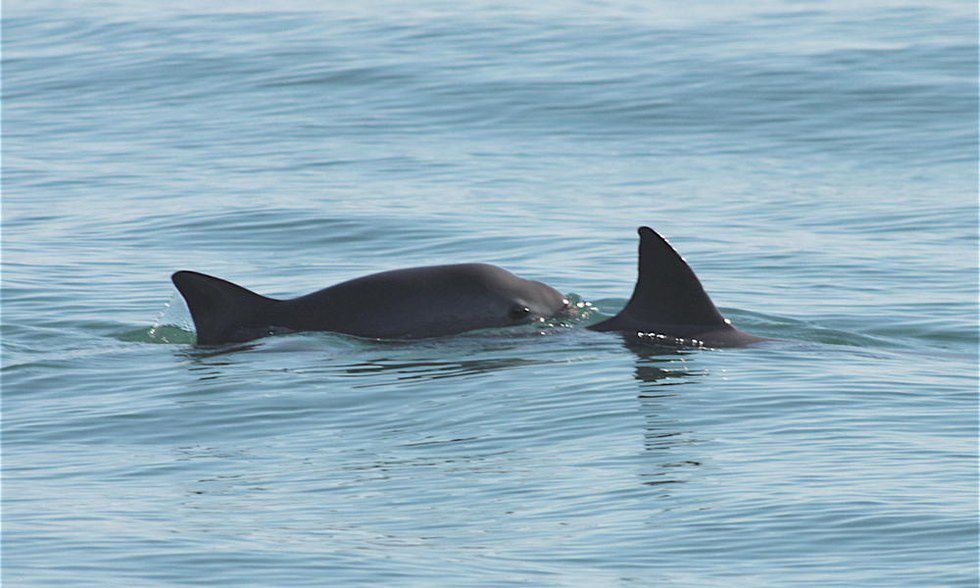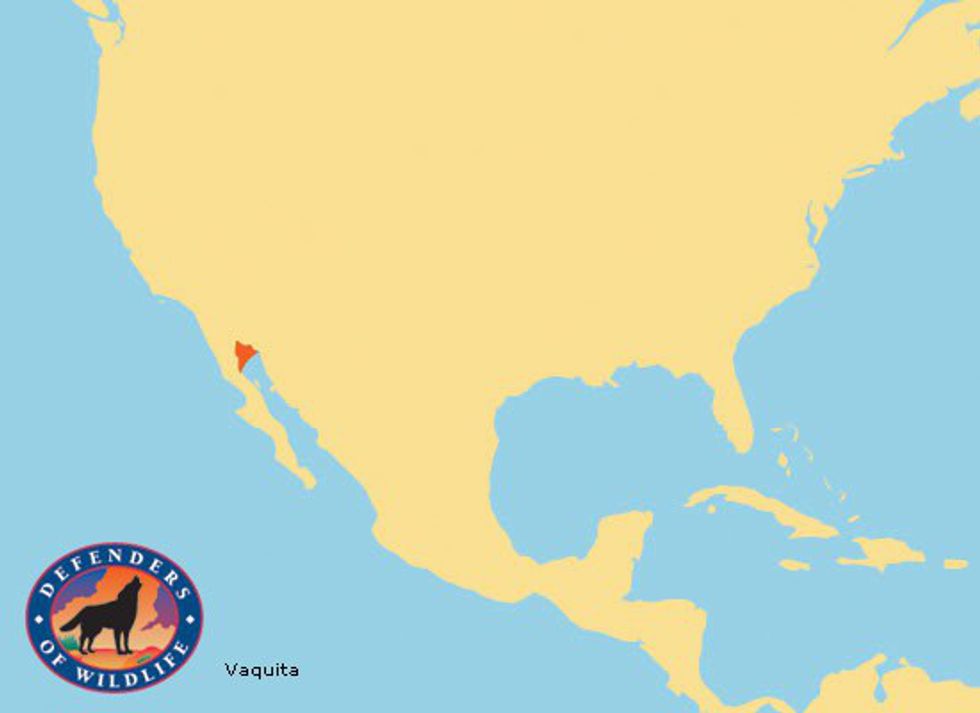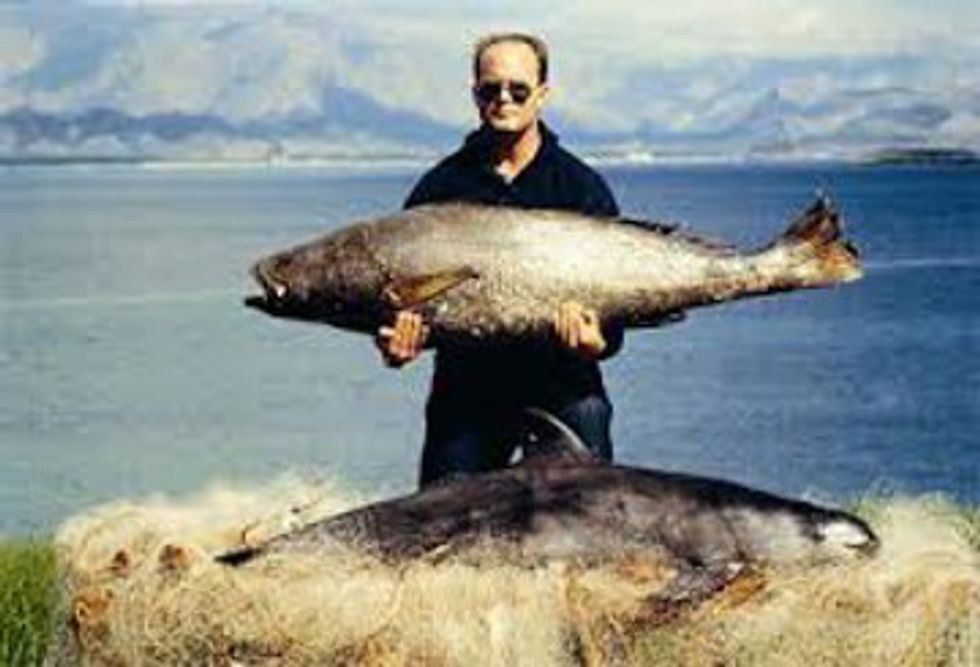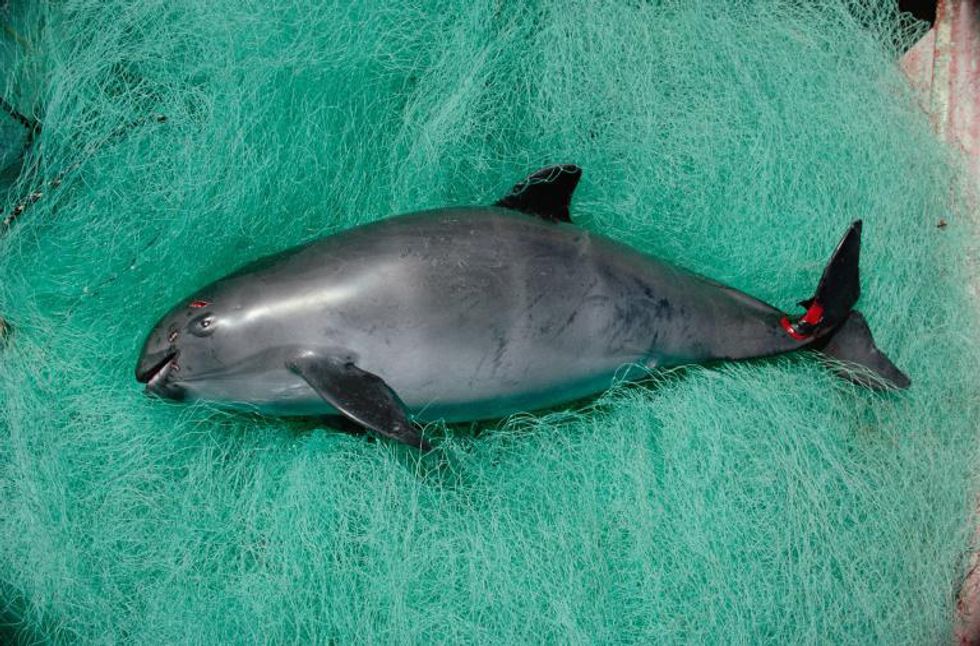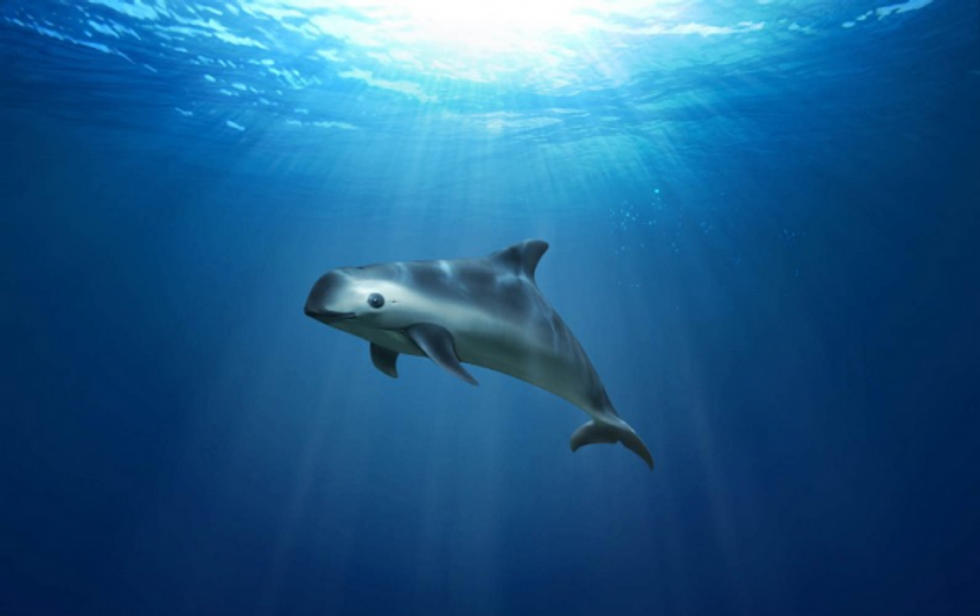The Vaquita Porpoise (Phocoena sinus) is the rarest mammal you've probably never heard of. Also known as the Gulf of California harbor porpoise, the vaquita is the rarest marine mammal in the world. On May 14, the International Committee for the Recovery of the Vaquita (known formally as Comité Internacional para la Recuperación de la Vaquita, or CIRVA) announced that the species would likely be extinct by 2022.
(Source: worldwildlife.org, photograph by Thomas A. Jefferson)
The vaquita porpoise was only discovered in 1958. Their name, vaquita, is Mexican for "little cow." They were aptly named for their dark upper body and white underbelly (called "countershading," a common type of camouflage in marine animals), and the dark circles around their eyes. Not only are they the rarest marine mammal species, they are the smallest of all the cetaceans (the scientific classification for all whales). Adults grow to a mere 1.5 meters (five feet) in length.
They also inhabit the smallest range of any cetacean species. Their habitat appears to be restricted to only the uppermost portion of Mexico's Gulf of California.
(Source: defenders.org The vaquita's range is highlighted in orange.)
Unfortunately for the vaquita, the species shares their habitat with the also endangered Totoaba fish (Totoaba macdonaldi). The totoaba is a large fish that grows to lengths of two meters (six feet), easily dwarfing the porpoises. The totoaba is harvested for its swim bladder, a gas-filled organ found in most bony fish that allows the animal to stay upright in the water column without having to be constantly swimming. It is a rare Chinese delicacy that fetches a price upwards of thousands of dollars on the black market.
(A man holds a tatoaba fish above the unintended catch of vaquita porpoise, caught in a gill net. Source: marinemammalcenter.org)
The vaquita porpoise is what fisherman and conservationists alike call "by-catch." The fishermen use a type of net called a gill net that is infamous in the world of wildlife conservation for its propensity to snare more than the intended fish. Sharks, dolphins, porpoises, sea turtles and non-edible fish are often caught in such nets, entangled and unintentionally drowned. Interactions with such fishing gear are the primary cause of the decline in vaquita population numbers.
Since this species was discovered in 1958, there has been a continuous population decline, caused almost entirely by the use of gill nets to catch totoaba and other species in the vaquita's habitat. According to CIRVA in its 2012 survey and reported by the Marine Mammal Center, there were roughly 200 individuals left in the wild. It was estimated that nearly 100 of those individuals were killed by gill nets. In 2014, the number dropped to a devastating 97 individuals. As of May 14, 2016, the population plummeted 40 percent to 60 individuals.
(Source: news.nationalgeographic.com)
Steps have been taken to protect the vaquita, but so far they seem to have all been in vain. In 2005, the habitat of the porpoise was established as a refuge. However, according to Juan Carlos Cantu Guzman, director of the Defenders of Wildlife Mexico office in 2010, "It is a refuge in name only."
In March 2015, the Mexican government suspended the use of gill net fishing methods and pledged $36 million to help support fishermen and their families affected by the implementation of the restriction. Unfortunately, the suspension has not been adequately upheld and regulated. The use of gill nets in the refuge is still rampant, and still wrecking havoc on the vaquita porpoise population.
Unless something is done immediately, the vaquita will soon join the Baiji River dolphin as the second cetacean species to vanish from our planet in this century. Unless radical changes are made and legislation not only passed but also implemented, the vaquita porpoise will also join the over 332 species which have gone extinct explicitly due to human activity in the past 500 years.
(Source: GreenPeace Mexico)
"We can still save the vaquita," says Omar Vidal of the World Wildlife Fund Mexico. "But this is our last chance."
The official report by CIRVA can be found here.




